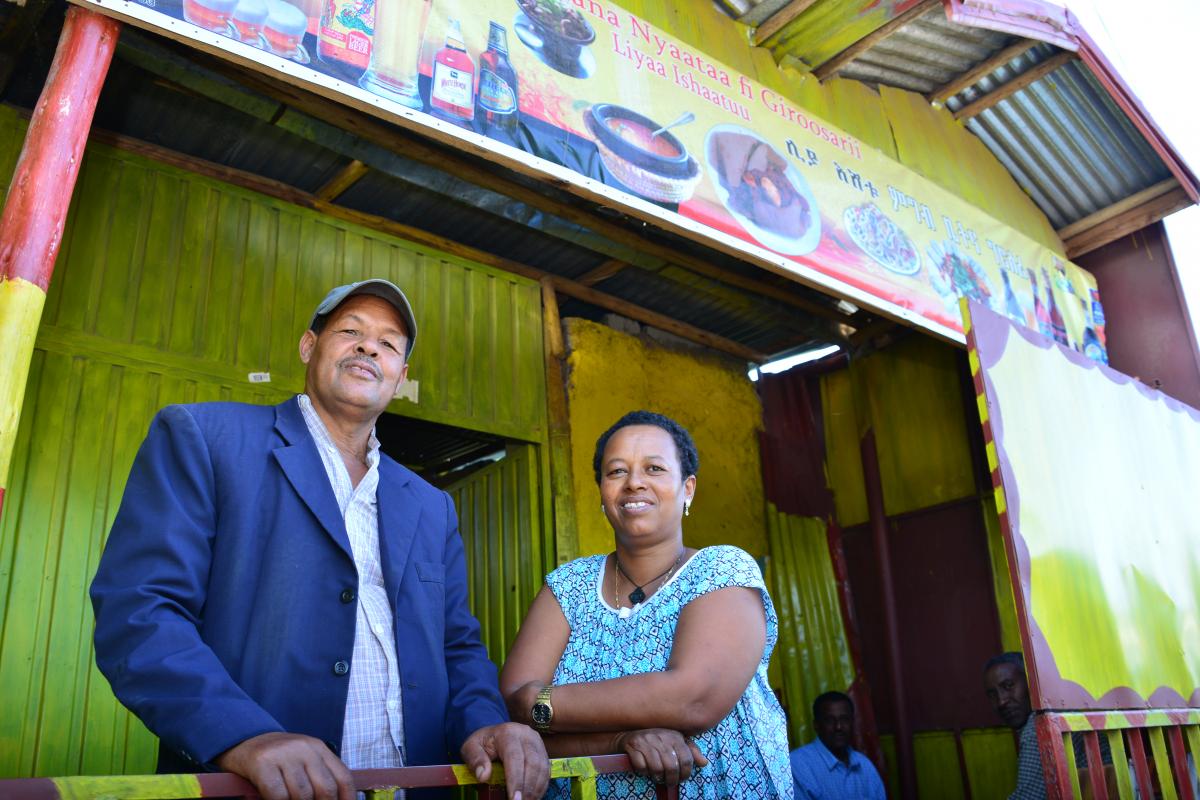Even with the expansion of national grid systems and tapping into renewable energy, it’s been argued that Africa’s energy systems are not meeting the needs of the poor.
In Ethiopia, the argument is not too far-fetched, against a population of 104 million people, how do you meet the energy needs of everyone especially for those in dire need like the poor?
Statistics from Ethiopia Ministry of Water, Irrigation and Energy indicate that with only 17 per cent of households directly connected to the grid and 45 per cent of the population living in areas with general access to electricity; electrification rate is still very low.
While the Ethiopian government has been keen to invest in macro-energy projects like solar and wind power, far much more needs to be done to address the challenges of expanding the energy systems and meet the demand of majority of the people who do not have access to the electricity grid.
In an effort to respond to this gap, Hivos East Africa through its Africa Biogas Partnership Programme (ABPP) has been keen on propelling the use of biogas an alternative source of energy. The approach of the programme is multi-tiered: to establish a market for biogas in order deliver clean energy for cooking and lighting and create renewable energy enterprises that will lead to jobs creation and income generation. Simply put clean energy that meets the needs of the poor.
Working in five African countries (including Ethiopia): Kenya, Uganda, Tanzania, and Burkina Faso, the programme has so far constructed 60,000 biogas plants with 17,439 plants in Ethiopia. Through its affiliate agency, the National Biogas Programme of Ethiopia, ABPP has leveraged on public-private sector partnerships to enable the rural poor have a sustainable source of clean energy.
Hivos East Africa’s Sally Akinyi spoke to a few beneficiaries from Nazret and Modjo towns in Central Ethiopia, over 150KM from Addis Ababa, where the programme implements some of its interventions. Here are their stories
‘’My kitchen garden has become so productive that we now make enough money from the sales of pawpaw and kales to run the household,’’ shares Gemi Korme, a farmer in Nazret town.
Gemi installed his bio-digester in February 2017. He notes that his biggest win in owning a bio-digester is the bio-slurry (semi-liquid mixture from the bio-digester) which he uses in his farm as organic fertilizer and pesticide. Bio-slurry has increased crop productivity in his farm and he now makes 800 Birr (equivalent to 34 USD) on a good market day from the sales of pawpaw, spinach and carrots.
His wife Alfeya, now takes 5-10 minutes to prepare meals which would previously take half an hour to prepare using charcoal. ‘’The use of biogas saves time and money. I would spend 275 Birr (equivalent to 11USD) to buy 50kg of charcoal’’.
From her agribusiness sales, Alfeya notes she has become self-sufficient and now doesn’t have to rely on her husband to run the household.
Lemi Kumbi and his wife Ganet Balacho had their bio-digester installed in 2016. The proceeds he got from his farm would later portray him as the model farmer in his community with his neighbours now eager to learn from his success. The fertility of the soil in his farm has improved such that he has three planting seasons. He has also ventured into agri-business where he makes 300 Birr (12 USD) every week from the sales of pawpaw.
‘’I learnt about biogas through a promotional campaign within my community. I was more interested in using the bio-slurry to boost productivity in my farm because my area is semi-arid,’’ he said.
Ganet would previously spend up to 3 hours looking for firewood, an activity she notes has since become a thing of the past. She also had respiratory infections due to smoke from firewood and use of dung-cakes (traditional fuel made from cow-dung).
Getachew Lamecha owns a Biogas Construction Enterprise in Modjo town. A business he ventured into using his own capital as a former mason. In a good month, he makes 1400 Birr (equivalent to 60 USD) from each biogas plant he constructs.
To entrench quality standards within his enterprise, he does after-sales service every 6 months to perform a maintenance check on his clients’ biogas plants. From his business he has created up to 11 jobs (5 masons and 6 daily workers) contributing to employment in his area.
He also conducts outreach programmes to create awareness on the use of biogas. He pays monthly visits to forums such as Iqub – a village savings group- to promote biogas.
Wagetye Taye and Eshete Tekolu portray a different story. They use biogas for cooking in their hotel and now make savings of up to 4,000 Birr (equivalent to 170 USD) a month from the sales of Injera (traditional bread in Ethiopia) and other meals.
Good profits from their hotel business have enabled them to expand their enterprise to a local shop where they make enough to cater for their household’s daily needs and pay school fees for their children.
Hivos East Africa in partnership with SNV has implemented the Africa Biogas Partnership Programme in Ethiopia since 2009. With support from the Ethiopian government, the programme continuously proves that clean energy is not only an option but simply the best choice.
Stay tuned for more stories on this.
Credit for all photos: Alex Kamweru/Hivos East Africa




